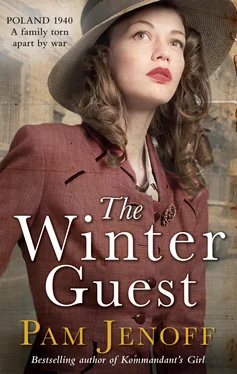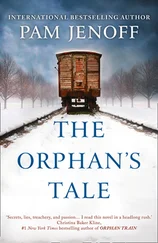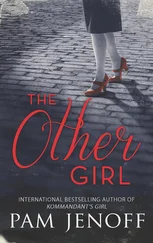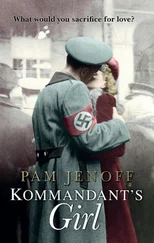A stirring novel of first love in a time of war and the unbearable choices that could tear sisters apart, from the celebrated author of Kommandant’s Girl
Life is a constant struggle for the eighteen-year-old Nowak twins as they raise their three younger siblings in rural Poland under the shadow of the Nazi occupation. The constant threat of arrest has made everyone in their village a spy, and turned neighbor against neighbor. Though rugged, independent Helena and pretty, gentle Ruth couldn’t be more different, they are staunch allies in protecting their family from the threats the war brings closer to their doorstep with each passing day.
Then Helena discovers an American paratrooper stranded outside their small mountain village, wounded, but alive. Risking the safety of herself and her family, she hides Sam—a Jew—but Helena’s concern for the American grows into something much deeper. Defying the perils that render a future together all but impossible, Sam and Helena make plans for the family to flee. But Helena is forced to contend with the jealousy her choices have sparked in Ruth, culminating in a singular act of betrayal that endangers them all—and setting in motion a chain of events that will reverberate across continents and decades.
‘This love story will melt you.’
— Company magazine on The Ambassador’s Daughter
‘This is historical romance at its finest.’
— Publishers Weekly on Kommandant’s Girl
‘In her moving first novel, Jenoff offers an insightful portrait of people forced into an untenable situation and succeeds in humanising the unfathomable as well as the heroic.’
— Booklist
‘Poignant and intense’
— Good Book Guide on The Diplomat’s Wife
‘Jenoff explores the immediate aftermath of World War II with sensitivity and compassion, shedding light on an often overlooked era of European history. She expertly draws out the tension and illustrates the danger and poverty of Eastern Europe as it falls under communism. Highly recommended for all fiction collections.’
— Library Journal on The Diplomat’s Wife
‘… well constructed and a real page-turner’
— Birmingham Jewish Weekly on The Diplomat’s Wife
PAM JENOFFis the author of several novels, including the international bestseller Kommandant’s Girl , which also earned her a Quill Award nomination. Along with a bachelor degree in International Affairs from George Washington University and a Master’s degree in History from Cambridge, she received her Juris Doctor from the University of Pennsylvania and previously served as a Foreign Service Officer for the US State Department in Europe, as the Special Assistant to the Secretary of the Army at the Pentagon and as a practising attorney. Pam lives with her husband and three children near Philadelphia where, in addition to writing, she teaches law school.
Visit Pam at www.pamjenoff.com
Also by Pam Jenoff
KOMMANDANT’S GIRL
THE DIPLOMAT’S WIFE
THE AMBASSADOR’S DAUGHTER


For Mom,
who still makes our lives better every single day.
Contents
Cover
Back Cover Text
Praise for PAM JENOFF
About the Author
Also by Pam Jenoff
Title Page
Dedication
Prologue
1
2
3
4
5
6
7
8
9
10
11
12
13
14
15
16
17
18
19
20
21
22
23
24
25
26
Epilogue
Acknowledgments
Questions for Discussion
Extract
Copyright
Prologue
New York, 2013
“They’re coming around again,” Cookie says in a hushed voice. “Knocking on doors and asking questions.” I do not answer, but nod as a tightness forms in my throat.
I settle into the worn floral chair and tilt my head back, studying the stucco ceiling, the plaster whipped into waves and points like a frothy meringue. Whoever said, “There’s no place like home” has obviously never been to the Westchester Senior Center. One hundred and forty cookie-cutter units over ten floors, each a six hundred and twenty square foot L-shape, interlocking like an enormous dill-scented honeycomb.
Despite my issue with the sameness, it isn’t an awful place to live. The food is fresh, if a little bland, with plenty of the fruit and vegetables I still do not take for granted, even after so many years. Outside there’s a courtyard with a fountain and walking paths along plush green lawns. And the staff, perhaps better paid than others who perform this type of dirty and patience-trying work, are not unkind.
Like the white-haired black woman who has just finished mopping the kitchen floor and is now rinsing her bucket in the bathtub. “Thank you, Cookie,” I say from my seat by the window as she turns off the water and wipes the tub dry. She should be in a place like this with someone caring for her, instead of cleaning for me.
Coming closer, Cookie points to my sturdy brown shoes by the bed. “Walking today?”
“Yes, I am.”
Cookie’s eyes flicker out the window to the gray November sky, darkening with the almost-promise of a storm. I walk almost every day down to the very edge of the path until one of the aides comes to coax me back. As I stroll beneath the timeless canopy of clouds, the noises of the highway and the planes overhead fade. I am no longer shuffling and bent, but a young woman striding upward through the woods, surrounded by those who once walked with me.
And I keep a set of shoes by the bed all of the time, even when snow or rain forces me to stay indoors. Some habits die hard. “How’s Luis?” I ask, shifting topics.
At the mention of her twelve-year-old grandson, Cookie’s eyes widen. Most of the residents do not bother to learn the names of the ever-changing staff, much less their families’. She smiles with pride. As she raises a hand to her breast, the bracelet around her wrist jangles like ancient bones. “He made honor roll again. I’m about to go get him, actually, if you don’t need anything else...”
When she has gone, I look around the apartment at the bland white walls, the venetian blinds a shade yellower with age. Not bad, but not home. Home was a brownstone in Park Slope, bought before the neighborhood had grown trendy. It had interesting cracks in the ceiling, and walls so close I could touch both sides of our bedroom if I stretched my arms straight out. But there had been stairs, narrow and steep, and when my old-lady hips could no longer manage the climb, I knew it was time to go. Kari and Scott invited me to move into their Chappaqua house; they certainly have the room. But I refused—even a place like this is better than being a burden.
I look across the parkway at a strip mall now past its prime and half-vacant, wondering how to spend the day. The rest of my life rushed by in an instant, but time stretches here, demanding to be filled. There are activities, if one is inclined, knitting and Yiddish and aqua fitness and day trips to see shows. But I prefer to keep my own company. Even back then, I never minded the silence.
Читать дальше



![О Генри - Граф и свадебный гость [Черное платье] [The Count and the Wedding Guest]](/books/405331/o-genri-graf-i-svadebnyj-gost-chernoe-plate-th-thumb.webp)










